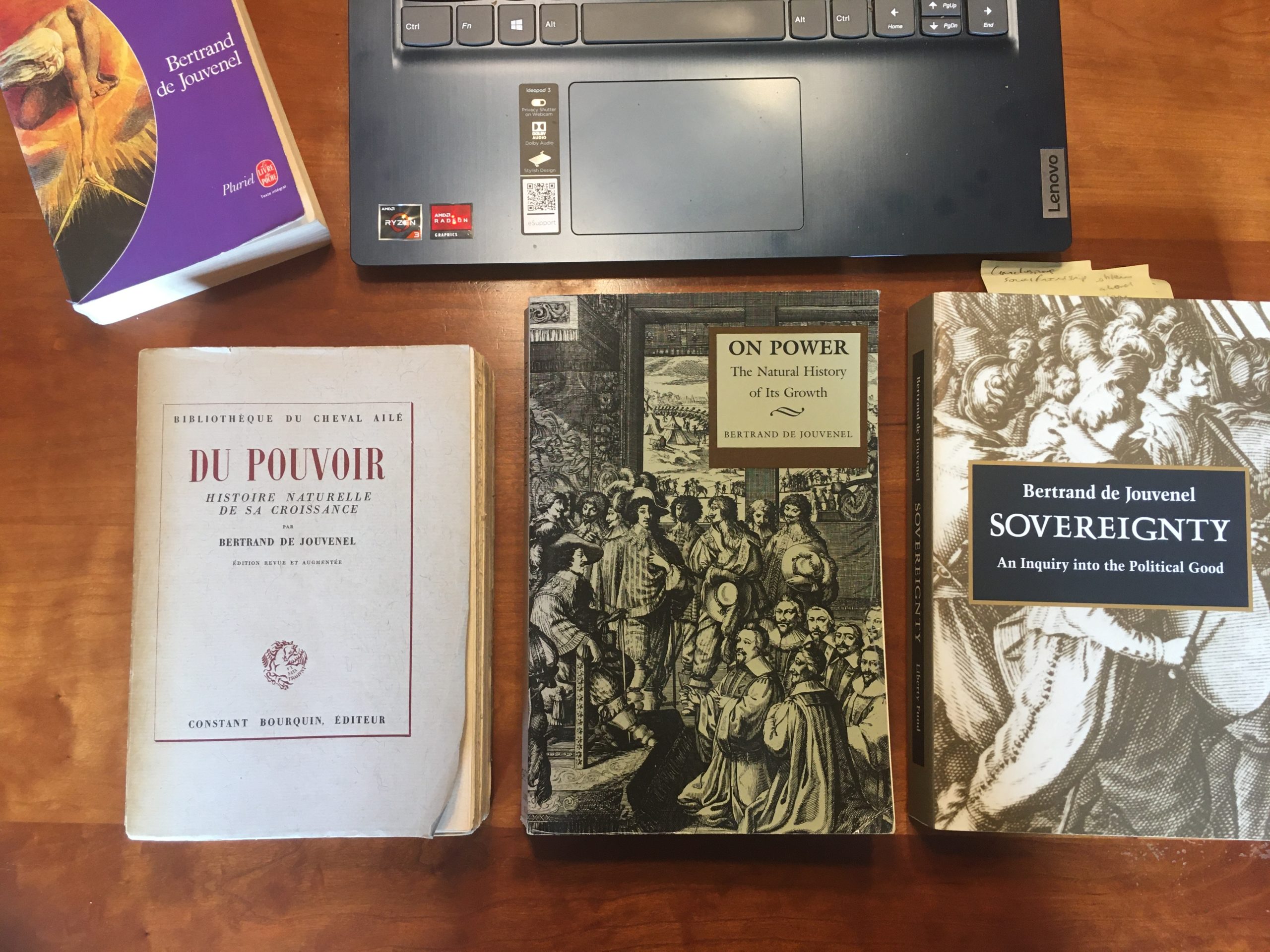At Law and Liberty, Daniel Mahoney has an interesting and often challenging article on Bertrand de Jouvenel. Mahoney, like Jouvenel, tries to reconcile the danger of the state (“the Minotaur” in Jouvenel’s terms) with the ancient philosophical ideal of a “common good” that political authorities are supposed to protect.
My own reading of Jouvenel, specifically of his book On Power, has been mainly classical-liberal or libertarian, although I have emphasized the contradictions that professor Mahoney claims to resolve.
One fundamental problem, which Mahoney does not discuss in his Law and Liberty article, is: What is the “common good”? Can you find many trade-offs or values on which everyone in society agrees? If not, who does the agreeing, who makes the choice?
I remember Anthony de Jasay asking about Jouvenel, with insistent puzzlement, “What does he mean?”


READER COMMENTS
Philo
Apr 19 2021 at 4:06pm
The measure of the common good of a group is the sum of the measures of the individual goods of the members of the group.
As for *agreeing*, and *choice*: Just as different sportswriters may, but need not, agree whether Barry Bonds deserves to be in the baseball Hall of Fame, and their choices whether to vote for him may, but need not, be the same, so different citizens may, but need not, agree on which measures will most contribute to the common good of the citizenry, and their relevant votes may, but need not, coincide.
Pierre Lemieux
Apr 19 2021 at 4:38pm
Philo: Your comment helps put the problem in sharp focus. Suppose a society of two individuals, Primus and Secundus. Primus thinks that the common good requires that all wolves be killed; Secundus thinks that it should be forbidden to kill any. Calculate the sum to get the common good. Or Primus thinks that the common good is to be determined by voting; Secondus opines that the common good is what Nicomachean Ethics says. Again, add this. Primus thinks that wine is good; Secondus thinks it is evil. What’s the sum? The impossibility gets more daunting as you increase the number of individuals in society; or when you consider Arrow’s Theorem; and so forth. See an introduction in “The Vacuity of the Political ‘We’.”
Thomas Lee Hutcheson
Apr 20 2021 at 7:04am
Isn’t the classical liberal insight that on many things it is unnecessary to agree and markets reduce the number. Unfortunately there ARE some things that we must agree on, so the problem does not go away.
Pierre Lemieux
Apr 20 2021 at 5:36pm
Thomas: You set up the problem correctly. Your second sentence is probably true, but the double problem is: How do “we” agree on what it is we have to agree on; and then, how do “we” agree on the things we have decided to agree on? There are many ways to agree on something without voting. Indeed, the problem with voting is that different voting systems will often give different results; and that, within a given system, the different results will be either incoherent or dictatorial (see my review of William Riker’s classic in the current issue of Regulation). As for agreeing on what to agree—the first level of agreement referred to above—James Buchanan’s social contract theory is very interesting, but it is not sure this approach solves all problems. Another way of agreeing is through spontaneously developed conventions à la Hume (such as property); if you haven’t yet done it, reading Anthony de Jasay on this is essential. His most relevant work on this specific topic is his last book, which I also reviewed in Regulation as “The Valium of the People.” You might even approve his doubts on the contingent necessity to agree on protection against foreign tyrants.
Comments are closed.